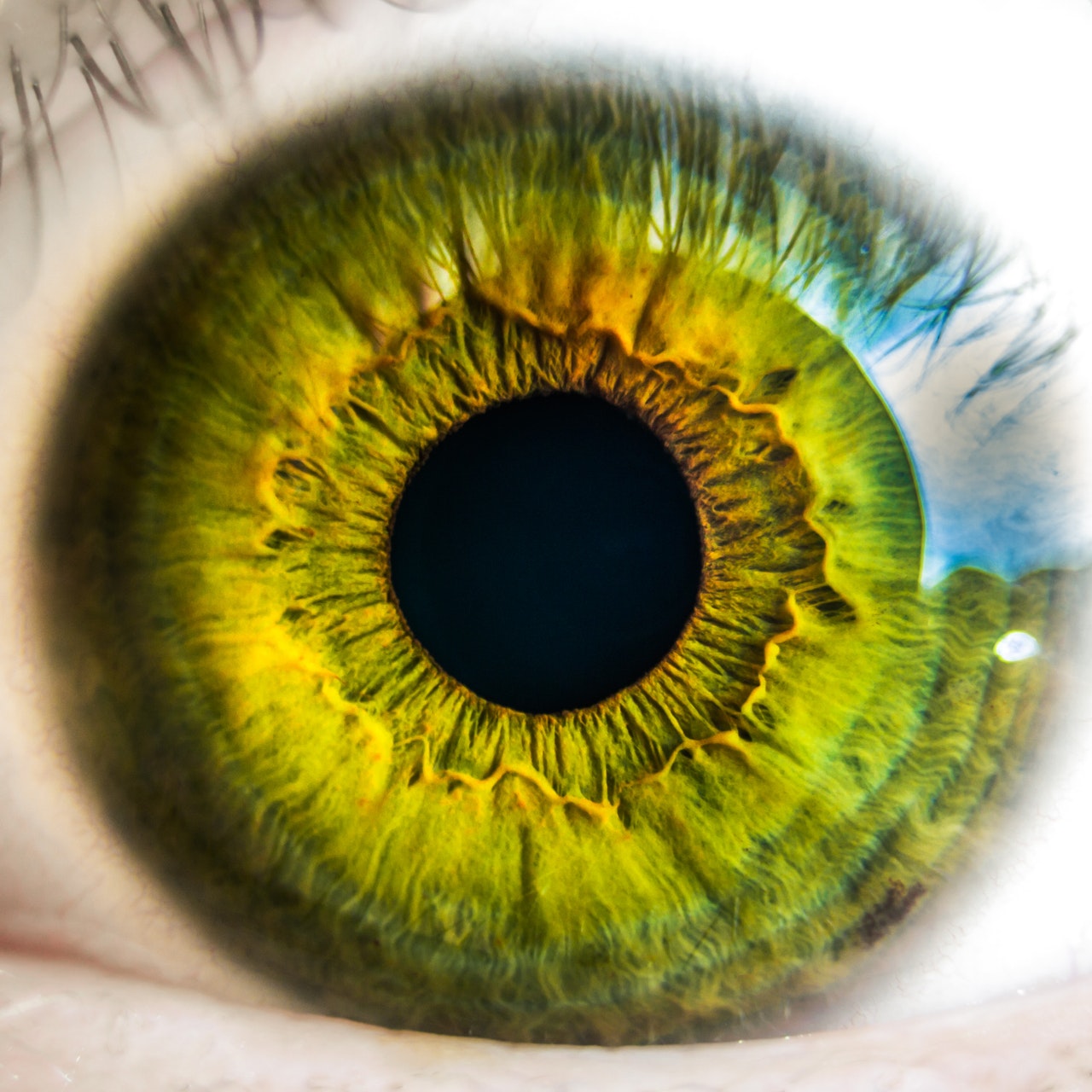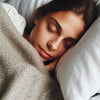
If You Use a Smartphone
If you use a smartphone, or for that matter, you use a computer more than a few hours a day, I’ve got some helpful information to share with you.
The screen you find yourself staring into for hours a day could be damaging your eyes.
{Sigh}, I know.
It’s like every few steps we take forward in technology is always bracketed by a few steps back.
In this case, the screens that add so much richness to our lives (and let’s be honest, devices aren’t “the devil” and really do make life a little bit better) also have a knack for creating some problems.
Which is why I’m going to give you some insight into what these devices are doing to your eyes as well as giving you some helpful tips to protect your peepers.
How Blue Light From Our Devices Harms Our Eyes
I’m going to be completely honest and confess I spend more time on devices than I’d like to.
If I had my way I wouldn’t spend more than 20 minutes on a computer or a phone.
And not just because the blue light they emit is harmful to our eyes, but because I would prefer to experience the world as it is, and not as I see it on a screen.
That being said there’s really no way to escape staring into a computer screen of some sort.
And these screens, as amazing as they are, are potentially dangerous.
What makes them so is the blue light they emit.
As you may remember, light is broken up into a spectrum of different wavelengths. Remember how Isaac Newton refracted sunlight through a prism and saw the different colors.
Every different colored wave of light has different qualities.
The problem with blue light in particular is researchers have noticed that our screens produce more blue light than any other kind of light and there’s research indicating blue light can prematurely age your eyes, especially the photosensitive retinas.
Computer and phone screens aren’t the only source of blue light. In fact, the sun produces far more blue light than all of the screens in the world combined. However, the vast majority of people don’t stare directly at the sun so they’re not absorbing the blue light in great amounts. That, and the sun’s rays have to travel 93 million miles to get to the Earth and they’re filtered by miles and miles of atmosphere.
Blue light from screens on the other hand isn’t filtered and only travels a few short feet until it passes through your cornea and into your eye.
Thus, because most people use devices for extended periods of time day after day, medical researchers caution that protectionary measures should be taken so blue light exposure doesn’t cause additional problems.
Here’s How to Protect Your Eyes From Blue Light
There are a number of ways to help protect your eyes.
I’m going to give you the most obvious and then tell you how you can support your eye health via dietary measures.
According to preventblindness.org some of the best ways to keep blue light from harming your eyes are as follows.
-
[Reduce] Screen Time: Try to decrease the amount of time spent in front of these screens and/or take frequent breaks to give your eyes a rest.
-
Filters: Screen filters are available for smartphones, tablets, and computer screens. They decrease the amount of blue light given off from these devices that could reach the retina in our eyes.
-
[Use Special] Computer Glasses: Computer glasses with yellow-tinted lenses that block blue light can help ease digital eye strain by increasing contrast.
- [Use] Anti-Reflective Lenses: Anti-reflective lenses reduce glare and increase contrast and also block blue light from the sun and digital devices.
The other ways are by adding in certain foods (and supplements) that contain nutrients known to help keep your eyes in a state of normal health.
The nutrients that I’ve included in our newest supplement called Eye Defense and the ones I recommend getting in your diet are Lutein, Zeaxanthin, Vitamin A, Vitamin E and Virgin Sea Buckthorn Oil.
Lutein and Zeaxanthin:
Lutein and zeaxanthin are two of the most well-known “eye nutrients” in the world. Often found in the same dietary sources, the best dietary sources of lutein and zeaxanthin are dark leafy greens. Topping the charts are kale, spinach, swiss chard, mustard greens and turnip greens.
Here’s an image from the All About Vision showing you the best dietary sources of lutein.
There are two reasons lutein and zeaxanthin are great for keeping your eyes healthy and helping you see clearly.
When it comes to general eye health they both act as antioxidants which help to prevent free radicals from causing damage to tissue in your eyes. Their antioxidant activity will keep your eyes nice and sharp.
In addition to that, both lutein and zeaxanthin help to filter out the harmful blue light that comes from your devices. OmniActives.com who made lutemax 2020, the proprietary blend, harnesses their ability to act as primary filters of high-energy blue light which supports visual health and acuity by protecting against oxidative stress and inflammation.
Vitamin A:
Vitamin A, also known to many as beta carotene is another well-known nutrient for eye health.
If you want to get a lot of vitamin A in your diet you should load up on Cod liver oil, pasture-raised eggs, orange and yellow vegetables and fruits (beta carotene is the reason they’re orange in the first place, as well as greens like broccoli, and spinach, among many other dark green, leafy vegetables.
The way vitamin A helps to keep your eyes healthy is it keeps your eyes lubricated and moist while also working as an antioxidant to help prevent ocular cells from degenerating under oxidative stress.
Blue light exposure can damage your cells and vitamin A is believed to keep that from happening.
Vitamin E:
Vitamin E is another antioxidant which has been shown to help keep eyes (as well as skin) healthy.
Before I explain why, you’ll want to know some of the best sources of vitamin E.
And while this article from HealthLine gives you the specific percentages, I wanted to give you the best options from a functional health standpoint.
- Sunflower seeds
- Almonds
- Peanuts
- Hazelnuts
- Salmon
- Avocado
- Rainbow trout
- Mango
- Kiwis
The reason vitamin E is helpful for keeping your eyes healthy is because it helps to protect cells from falling into disrepair as we age. As you saw above, exposure to blue light causes premature aging of the eyes (the retinas mainly) and the presence of vitamin E in your diet could stave off eye issues in the future.
Virgin Sea Buckthorn Oil:
Virgin sea buckthorn oil is a product many people are used to finding in beauty products.
And while it may be kind of creepy if I told you “your eyes are beautiful” the truth is the inclusion of sea buckthorn oil will actually keep your eyes beautiful as well as functioning properly.
Sea buckthorn oil is rich in Omega 7 which has the known power to keep your eyes hydrated and reduce the redness associated with minor inflammation in the eye.
A human study on sea buckthorn oil has shown that using it helps to protect the eyes.
Petra Larmo, Ph.D. was one of the lead authors in this study and he wrote the following “In our research on SBA24, a special type of sea buckthorn oil, we have found that it is effective in improving eye comfort. It has significant and measurable impact on healthy eye hydration.”
So on top of the other ingredients helping to shield your eyes this one keeps them feeling great too.
For This Reason I’ve Made Eye Defense
Here’s the sad truth about life today.
It’s almost impossible to get away from using screens and exposing ourselves to blue light.
And while dietary introduction of nutrients should be the #1 way to take care of your eyes the truth is it’s going to require quite a bit of food to protect your eyes.
That’s why I made Eye Defense.
Eye Defense is for people who want to keep their eyes healthy and who know they’re simply not going to get away from screen time.
Eye Defense is a once-a-day supplement that helps shield your eyes from the damage that comes from daily life in the 21st century.
If you’d like to get some for yourself or a loved one click this link or any of the links above (or on the picture below).




